8 Simple and Appetizing Mie Tek Tek Recipes, Uniquely Delicious
Mie tek tek can be prepared by boiling (wet) or frying (dry). Here is the simplest mie tek tek recipe.

Kapanlagi.com - Praying is one way humans communicate with their God. Likewise in Islam, prayer has an important position in religious teachings. Every day, Muslims pray to Allah SWT to ask for sustenance, seek forgiveness, and so on. In Islam, the virtue of prayer is truly extraordinary.
Prayer is not only a way to ask Allah SWT. More than that, with prayer, a Muslim can become closer to his creator. In this life, there are already many people who have proven the power of prayer. But in order to be accepted, of course, prayer must be uttered sincerely. Therefore, it is only fitting for Muslims to understand the virtue of prayer.
Well, summarized from various sources, here is a discussion about the virtue of prayer and its obligatory etiquette that every Muslim must know and understand.
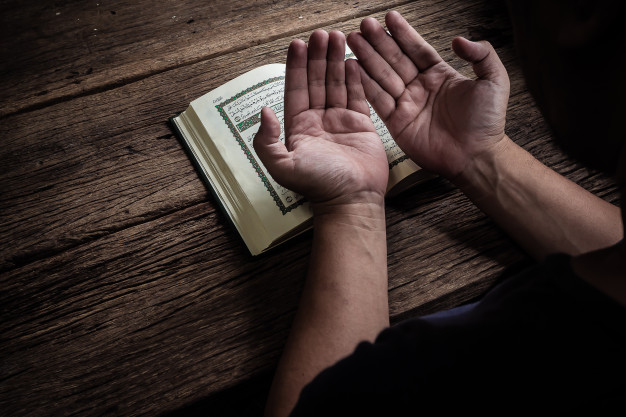
(credit: freepik)
As mentioned earlier, prayer is an important aspect in Islam. Almost every worship in the Islamic religion is accompanied by prayer. In fact, before engaging in various activities, Muslims are encouraged to pray first.
Furthermore, there are indeed virtues of prayer in Islam. Some of these virtues include Allah SWT granting every request conveyed in prayer. This is stated in one of the verses of the Quran, which means:
"And your Lord says, 'Call upon Me; I will respond to you.' Indeed, those who disdain My worship will enter Hell [rendered] contemptible." (Surah Ghafir, verse 60).
In addition to the above verse, Allah SWT's promise to grant every prayer is also contained in Surah Al-Baqarah, verse 186, which means:
"And when My servants ask you (O Muhammad) concerning Me, indeed I am near. I respond to the invocation of the supplicant when he calls upon Me. So let them respond to Me [by obedience] and believe in Me that they may be [rightly] guided."
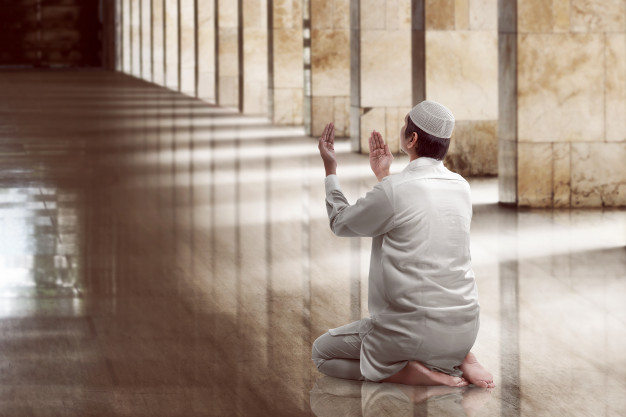
(credit: freepik)
However, in order to obtain the blessings of prayer, every Muslim must pray with proper etiquette, in accordance with the teachings of Prophet Muhammad. One of the etiquettes of prayer in Islam is that it must be done with sincerity. Prophet Muhammad mentioned this in one of his hadiths.
Narrated by Anas bin Malik, may Allah be pleased with him, he said, the Prophet Muhammad said:
"When one of you prays, let him pray with sincerity in his supplication to Allah, and let him not say, 'O Allah, if You will, then grant my prayer,' for indeed, no one can compel Allah."
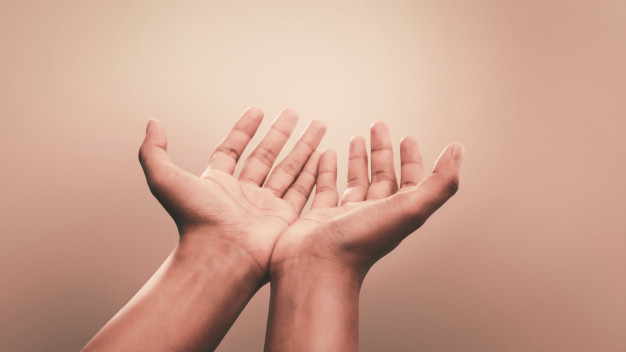
(credit: freepik)
The second etiquette of prayer is to pray with hope and certainty. This is because Allah SWT loves His servants who pray with hope and certainty. Especially those who, when praying, fear that their prayers will not be answered due to feeling burdened by sins.
Regarding prayer with certainty, Allah SWT also explains it directly in one of His verses, which states:
"And when My servants ask you concerning Me, indeed I am near. I respond to the invocation of the supplicant when he calls upon Me. So let them respond to Me and believe in Me that they may be guided." (Quran, Surah Al-Baqarah, verse 186).
To obtain the virtue of answered prayers, a Muslim must also repent. Repentance can be evidence that a Muslim is earnest in faith and devout to Allah SWT.

(credit: freepik)
In addition to repentance, in their daily lives, a Muslim is also required to always avoid prohibited things. Whether it is in the form of food, wealth, and so on. This is because, according to one hadith of the Prophet Muhammad SAW, engaging in and consuming prohibited things can be a barrier to the acceptance of prayers.
Not only asking, but in praying, a Muslim also needs to offer praise to Allah SWT. In fact, it is highly recommended to begin every prayer with praises to Allah SWT, for example: "O Allah, the Most Merciful and Compassionate".
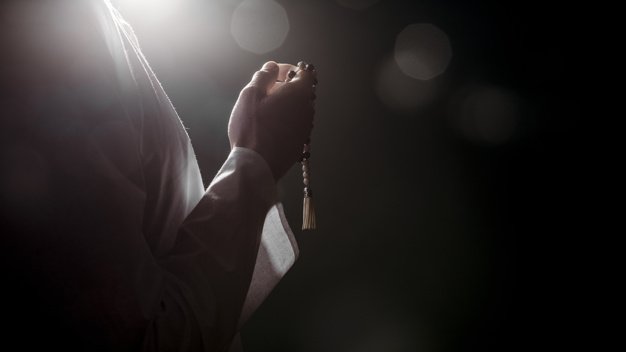
(credit: freepik)
Praying is like having direct communication with Allah SWT. Therefore, it is required for every Muslim to use a gentle voice. The etiquette of using a soft voice is mentioned in the Quran, Surah Al A'raf, verse 55, which means:
"Say: 'Call upon Allah or call upon the Most Merciful. Whichever name you call - to Him belong the best names.' And do not recite [too] loudly in your prayer or [too] quietly but seek between that an [intermediate] way."
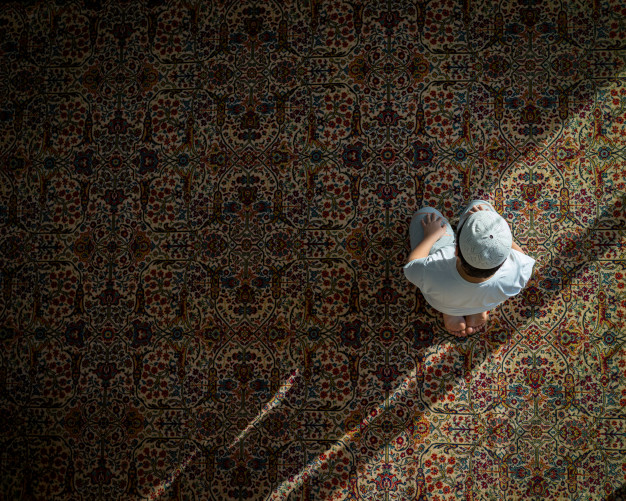
(credit: freepik)
Just like in prayer, it is preferable to face the Qibla when praying according to Islamic etiquette. As exemplified by the Prophet Muhammad (SAW) in one of the hadiths.
"From Jabir radhiallahu 'anhu, that the Prophet (SAW) when he was in the field of Arafah, he faced the Qibla and continued praying until the sun set." (HR. Muslim).

(credit: freepik)
One of the etiquettes of praying in Islam that should not be overlooked is praying at the appropriate time. Yes, supplicating at specific times that are considered to be effective in having prayers answered can be a key to the acceptance of prayers. As mentioned by the Prophet Muhammad in his hadith:
"Allah descends to the lower heaven every night when the last third of the night remains and says, 'Who will call upon Me, that I may answer him? Who will ask of Me, that I may give him? Who will seek My forgiveness, that I may forgive him?'" (Narrated by Muslim).
Those are some of the virtues of praying in Islam and the etiquettes of supplication according to the teachings of Prophet Muhammad. May it be beneficial and increase our faith as Muslims. Ameen.
(kpl/psp)
Cobain For You Page (FYP) Yang kamu suka ada di sini,
lihat isinya
Mie tek tek can be prepared by boiling (wet) or frying (dry). Here is the simplest mie tek tek recipe.
Late congregational prayer can be performed at the last prayer time. Here is the procedure for late congregational prayer and the difference with early congregational prayer.
These are the words of an exhausted heart to express your deep complaints and inner screams.
Through the following love words for your husband, you can strengthen your relationship and make it more romantic and harmonious. Let's take a look, KLovers!
Funny rain words can make us more immersed in beautiful and funny memories.
Here are some beautiful and unique Lebaran hampers ideas, not just food and drinks. Let's check it out KLovers.
This is the recipe for super spicy mercon claws, appetizing and addictive.
This is how to achieve the special Lailatul Qadar, along with the practices that can be done. Let's check it out KLovers.
Absolute prayer is one of the optional prayers that can be performed at any time, meaning it is not bound by time or the number of rak'ahs. Let's take a look at the complete review, KLovers!
Let's find out the explanation about the law of watching adult films during Ramadan fasting.
Without further ado, here are the recipes for crispy cat tongue with various flavors that are easy to follow.
Not just delicious, the recipe for anchovy sambal is very easy to make yourself with a very simple way of processing. Let's check out the review, KLovers!